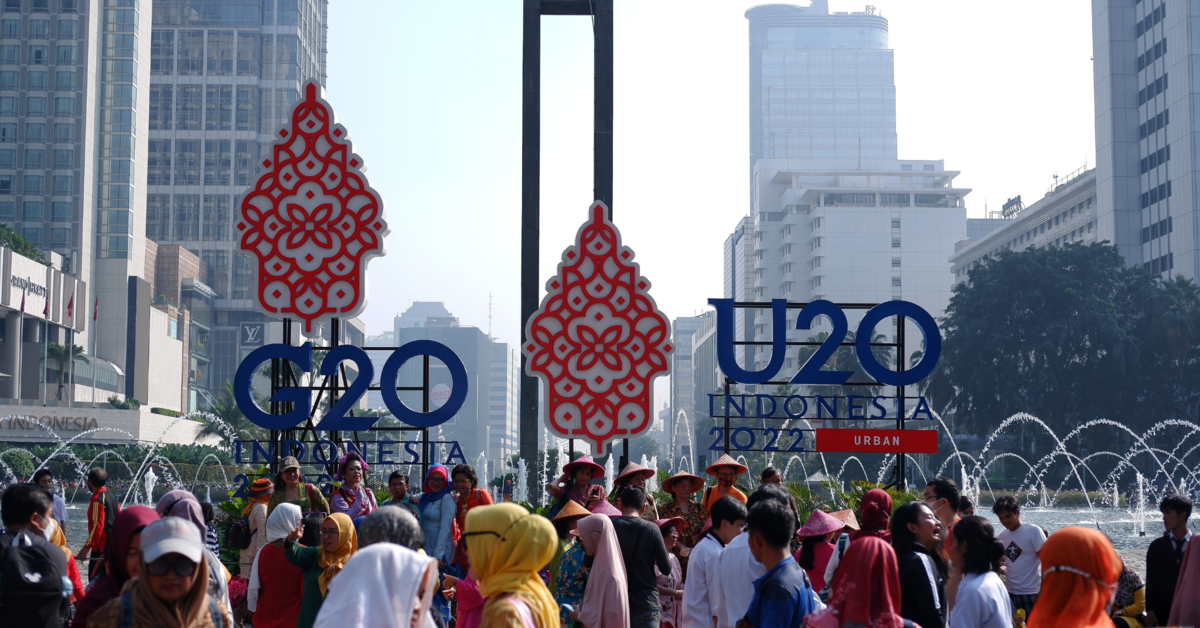At A Glance
-
November’s APEC Summit agreed upon the Bangkok Goals for the Bio-Circular-Green (BCG) Economy, which outlines targets on APEC’s sustainability development agenda, such as climate change mitigation, sustainable trade and investment, environmental resources conservation and waste management.
-
The BCG Economy synergizes existing sustainability approaches – the bioeconomy (renewable biological resources), the circular economy (upcycling) and the green economy (sustainable ecosystems) – to achieve balanced and sustainable economic growth more efficiently.
-
The private sector plays a critical role in promoting the BCG Economy: multinationals can promote sustainable behavior across supply chains, investors and banks are potential sources of investment for building infrastructure, and businesses and entrepreneurs can provide the skills and knowledge about technology to ensure that resources are used efficiently.
-
An APEC questionnaire identified opportunities within the BCG Economy, including research hubs, industry partnerships, expert councils, approaches to private sector support on R&D and tax incentives, and investments in skills development and new technology. It also identified difficulties for APEC countries, including attracting foreign investment on R&D-related projects and the cost increases associated with changes in production methods.
-
The private sector needs to scrutinize not only future opportunities, but also the business risk associated with delays in adopting sustainable practices.
The Asia-Pacific Economic Cooperation (APEC) is a regional economic forum binding 21 Asia-Pacific economies together to leverage the growing interdependence within the region. The latest 2022 APEC Summit was held on November 18-19, 2022 in Bangkok where senior government officials from the APEC economies discussed various efforts to promote sustainable trade and investment amidst the region’s ongoing economic challenges. One of the most significant achievements of this year’s APEC Summit was agreement on the 2022 APEC Economic Leaders’ Declaration and the Bangkok Goals for the Bio-Circular-Green (BCG) Economy.
The 2022 Leaders’ Declaration, which was issued at the conclusion of the 29th APEC Economic Leaders’ Meeting, affirmed APEC leaders’ long-standing commitment to promote strong, balanced, secure, sustainable and inclusive growth as well as to realizing the APEC Putrajaya Vision 2040. The Bangkok Goals will chart APEC’s new course on a sustainability development agenda by projecting the vision and direction that are laid out in the Putrajaya Vision 2040 and the Aotearoa Plan of Action, two previous APEC initiatives.
A Close Look at the BCG Economy
APEC Leaders endorsed the Bangkok Goals for the BCG Economy as a framework to promote achievement of APEC’s sustainability objectives. The Goals outline targets on climate change mitigation, sustainable trade and investment, environmental resources conservation and waste management.
The BCG Economy synergizes existing sustainability approaches to achieve balanced and sustainable economic growth more efficiently. It comprises three different components:
-
Bioeconomy involves the production of renewable biological resources and the conversion of these resources into value-added products.
-
Circular economy is based on an upcycling process to add value to unwanted materials by making them usable again.
-
Green economy leverages ecosystem processes to benefit humans in an equitable and inclusive manner without jeopardizing the sustainability of the ecosystem.
While each model is a standalone approach, the APEC economy leaders agreed that there is a need for these concepts to be integrated to respond to the full extent of the complex relationships between the economy, society and the environment.
Private Sector as a Key Player
The BCG Economy supports efforts by APEC economies to approach sustainability independently. However, there is value in adopting a common language to secure the most significant benefits from cooperation and coordination. The government, private sector and academia have an opportunity to contribute to coordinating activities and investments that leverage APEC’s capabilities to achieve BCG outcomes.
The private sector plays a critical role in delivering effective development cooperation and implementation of sustainable development. Multinational companies can promote sustainable behavior across supply chains, investors and banks are potential sources of investment for building infrastructure, and businesses and entrepreneurs can provide the skills and knowledge about technology to ensure that resources are used efficiently.
Opportunities and Challenges in Implementing BCG Economy
The involvement of many stakeholders across numerous sectors is required to advance APEC’s sustainability objectives. In accordance with an APEC questionnaire response regarding BCG Economy, a number of possibilities for joint multi-stakeholder actions were identified. A wide range of actions within the BCG Economy were described, including research hubs, industry partnerships, expert councils, approaches to private sector support on R&D and tax incentives, and investments in skills development and new technology. The integrated and holistic nature of the BCG Economy provides opportunities for the development of new sustainable business models, more efficient and circular production processes, and the attraction of additional foreign direct investment through sustainable finance arrangements.
While there are many opportunities to promote sustainability, the questionnaire response for the 19 APEC economies shows some of the potential challenges in implementing the BCG Economy. Despite efforts by many governments to promote BCG Economy by attracting foreign investment, there are areas where it is difficult to attract investment, namely R&D-related projects. To start an R&D project requires facilities and human resources of advanced technologies, especially in the production stage, such as localization, quality control, and manufacturing stabilization, which all require up-front investment. However, there is little incentive for foreign companies to actively conduct basic research in some APEC economies. In addition, cost increases associated with changes in production methods, which are inevitable, are also one of the constraints to expand the BCG Economy with APEC.
Implications for the Private Sector
Development of the BCG Economy will face challenges, but the move towards sustainability is irreversible. The private sector needs to scrutinize not only future opportunities, but also the business risk associated with delays in adopting sustainable practices.
Further reading:
APEC 2022 Leaders’ Declaration



